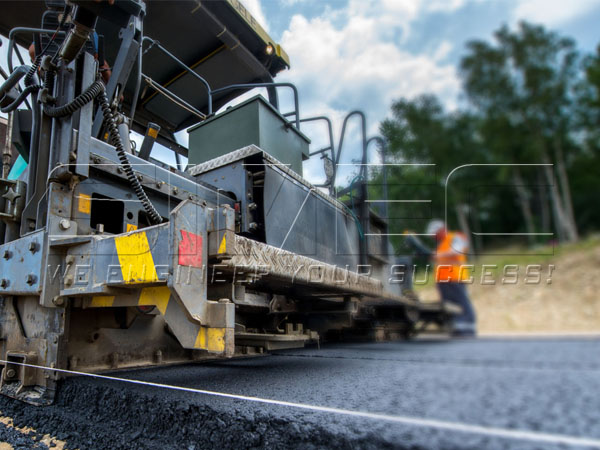PyCCS Research for Carbon Negative Road Construction
A key advancement in this field is SIMEC’s PyCCS (Pyrogenic Carbon Capture and Storage) research apparatus, which was delivered to the University of Western Australia in November 2025. This custom-built equipment supports the university’s research into developing industrial-scale carbon sequestration solutions tailored for sustainable road construction, advancing lab-scale innovation and real-world application.
Derived from renewable biomass sources, biochar inherently aligns with sustainable development goals. A critical application of this material in road construction: carbon in biochar can be covalently bound to specialized emulsions to create high-performance road surfacing products. SIMEC PyCCS apparatus is central to advancing such solutions, with a core focus on developing carbon-negative road construction technologies. By "carbon negative," we mean the solution removes more CO₂ from the environment than is emitted during its production and application—directly contributing to global carbon neutrality targets.
Main technical features of the PyCCS research apparatus:
1. Pyrolyzer capacity is optimized for research-scale experimentation while maintaining industrial relevance.
2. Pyrolysis Temperature Range: 200–800 ℃, covering the temperature spectrum required for producing biochar with varying properties.
3. Comprehensive Monitoring & Control Systems: Equipped with a PID intelligent controlling system, data logging system, temperature monitoring system, pressure monitoring system, syngas monitoring system, and nitrogen purge system. The data logger is capable of generating analytical curves to facilitate data interpretation.
4. Remote Operation Capability: A long-distance monitoring module allows researchers to access real-time data remotely and share information with off-site colleagues, enhancing collaboration efficiency.
5. Multi-Phase Sampling Interfaces: Dedicated sampling ports for solid, liquid, and gas-phase products, enabling comprehensive analysis of the pyrolysis process and its outputs.

Biochar’s high surface area and substantial pore volume enable it to bind effectively with asphalt binders and aggregates. This integration improves critical road properties, including structural stability, load-bearing strength, and water drainage, while simultaneously reducing common pavement issues such as rutting and cracking. The porous structure further prevents water-related damage, significantly extending the road’s service life. When combined with anionic emulsion, which provides strong adhesive qualities, the mixture fortifies soil cohesion, minimizes erosion risks, and protects both soil and biochar from weathering and external degradation. Together, these components create a stable road surface capable of withstanding heavy traffic loads and reducing long-term maintenance demands.
Beyond performance benefits, the adoption of biochar and emulsion in road construction, particularly for in-situ soil stabilization, delivers significant cost and environmental advantages. By replacing traditional aggregates and enabling long-term carbon sequestration within road infrastructure, biochar (a renewable resource) reduces the overall carbon footprint of the projects, aligning with global sustainable standards.
In summary, biochar-enhanced cold mix asphalt represents a win-win solution for modern infrastructure development. It not only enhances road durability and reduces maintenance costs but also advances environmental sustainability through permanent carbon storage, positioning it as a compelling choice for future-focused construction projects. Moreover, the R&D and application of SIMEC's PyCCS technology will further advance the industrialization of this low-carbon solution, providing critical support for the green transition of the infrastructure sector.
© Copyright of articles and pictures on this site belongs to SIMEC. Any company, media, website or individual are not allowed to reprint, reproduce, repost, modify or use in other ways without permission. Otherwise SIMEC will have the right to pursue legal responsibilities.